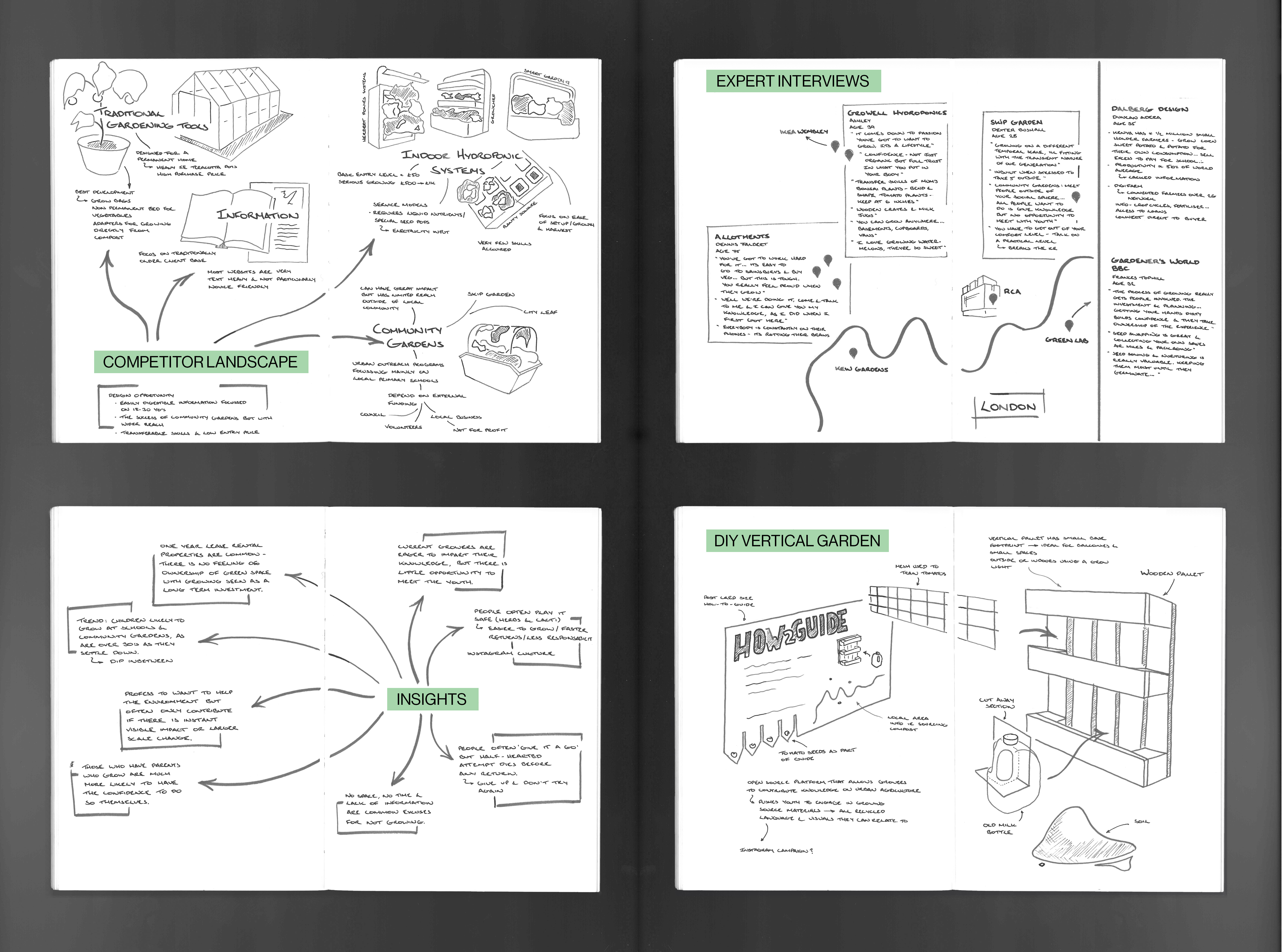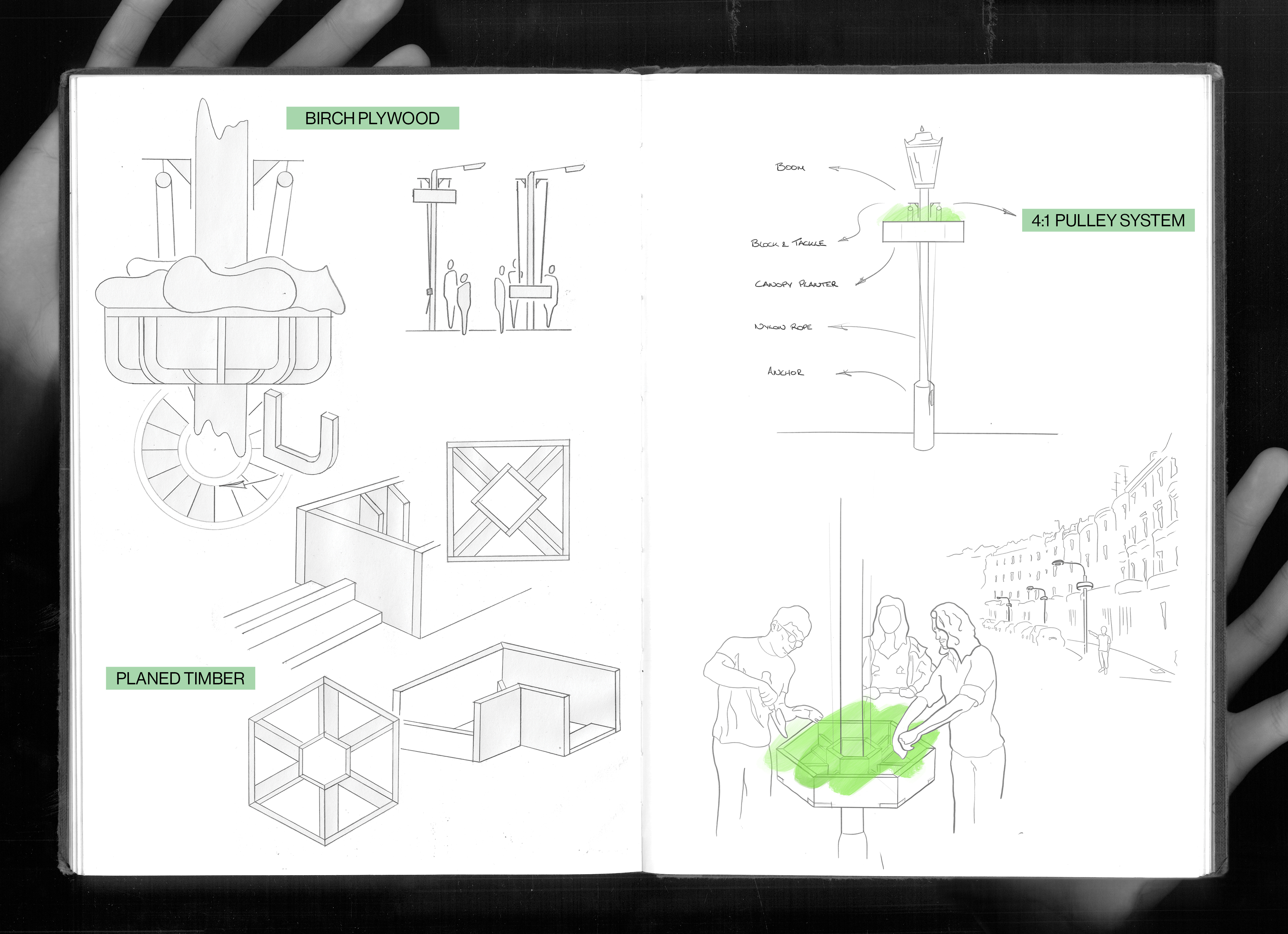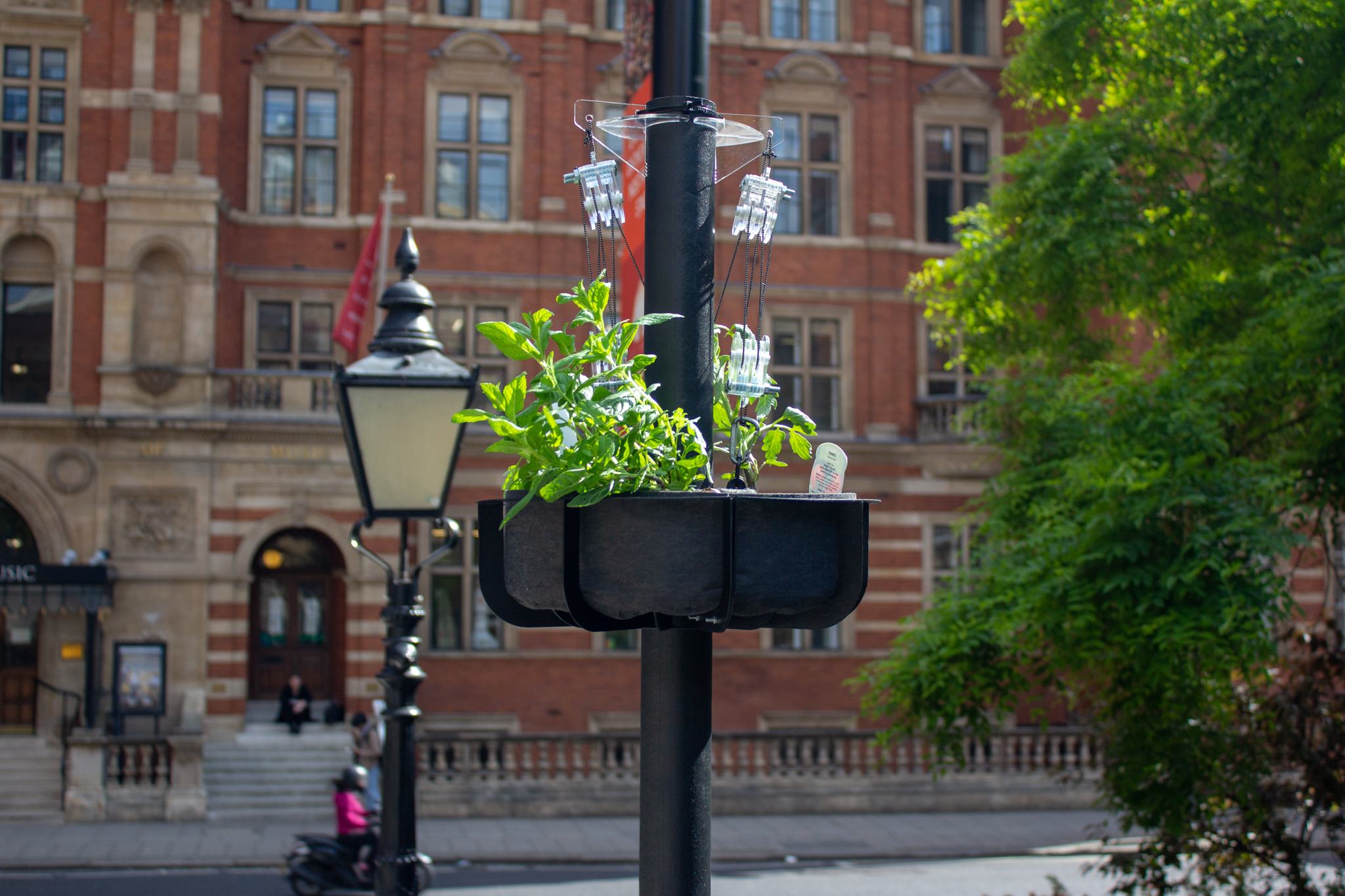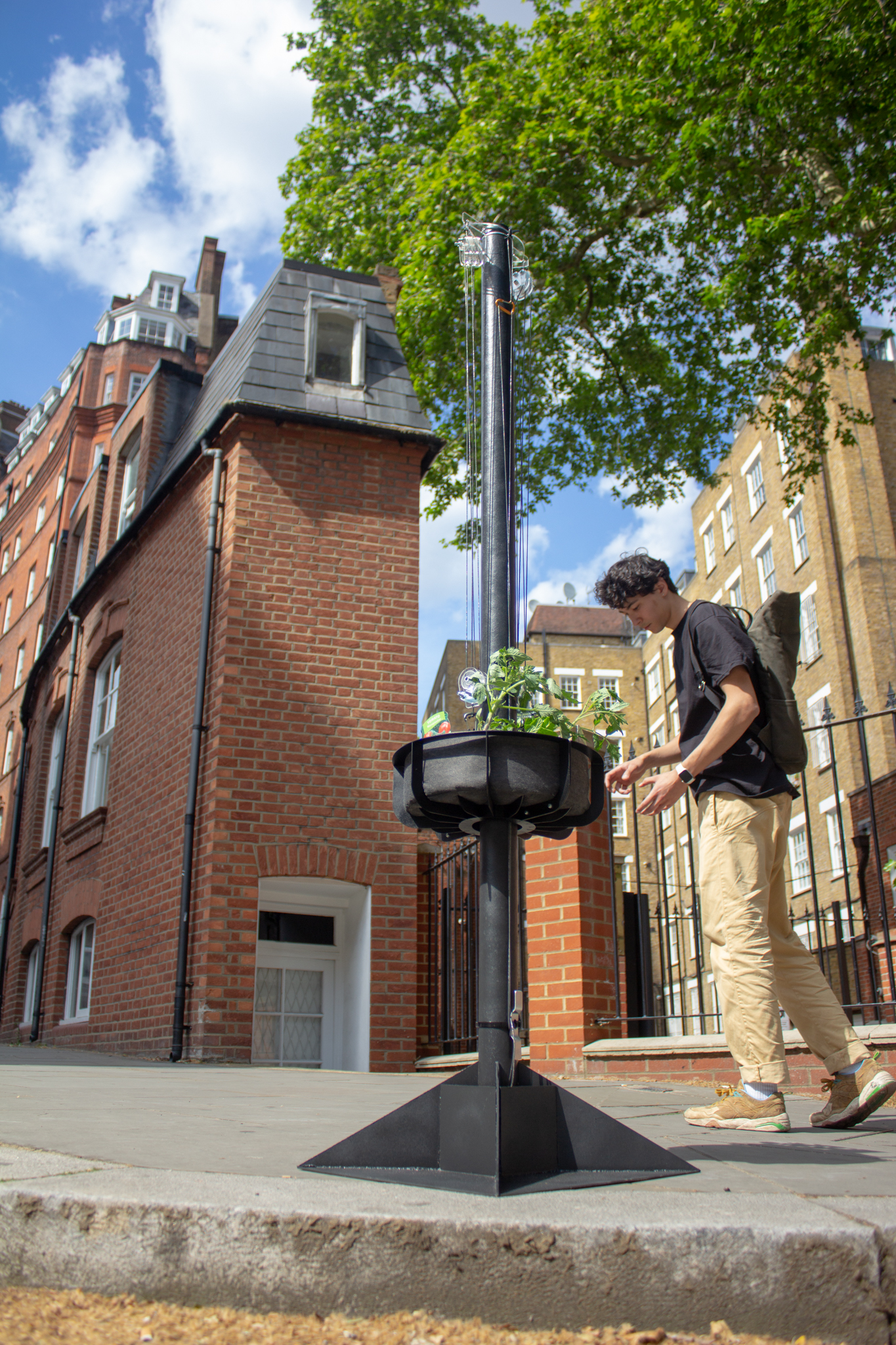CANOPY (2018)
Design Thinking and the Future of Food> Design thinking & behaviour change
> Sketching to communicate initial ideas
> Empowering individuals through self build

Fig. 1 Notebook scans of my initial research and insights
The world’s population is expected to rise to 9.8 billion by 2050. But with more unpredictable harvests and large amounts of waste, how can we bridge the disconnect between farm and plate to ensure future food security?
Inspired by a Nat Geo article comparing high yield micro farms in post-Mao China with the struggling mega farms in the west, I asked the question could the same model be applied to an urban city? How can we encourage 18-30 Year olds to grow more fruit and veg locally?

Fig. 2 Early sketches of Canopy, a micro community garden
My research took me across London, from hydroponics shops to allotments, community gardens and BBC Gardener’s World. What emerged was that current gardening hardware is heavy, bulky and screams the need for permanency. Due to high rent and short 1 year leases, this is the one thing young adults often don’t have and results in a lack of ownership of their green spaces. To make matters worse, online information is often dense and difficult to digest. First time growers are regularly overwhelmed or lose heart when they don’t see immediate results. On the other hand, seasoned growers are often keen to impart their knowledge but there is little opportunity to do so.

Fig. 3 1:5 scale models, exploring form & construction
Building on the success of local community gardens but with the desire to have a wider reach, I invented Canopy: a micro community garden that utilises the ubiquitous lamp post. Lowered it acts as a hub for local growers, young and old, to meet, share knowledge and socialise on their street. Raised when not in use, it sits above roadside pollution, creating an urban canopy.
With a nod to Enzo Mari and Walter Segal, I designed three open source planters, easy to source and assemble from commonly available materials and tools. There is no ownership. The garden is shared with your immediate community and all are encouraged to grow, learn and eat. The idea came about by fusing hanging baskets with lower-able clothes dryers traditionally found in social housing.


Fig. 4-5 Rough working prototype for user feedback